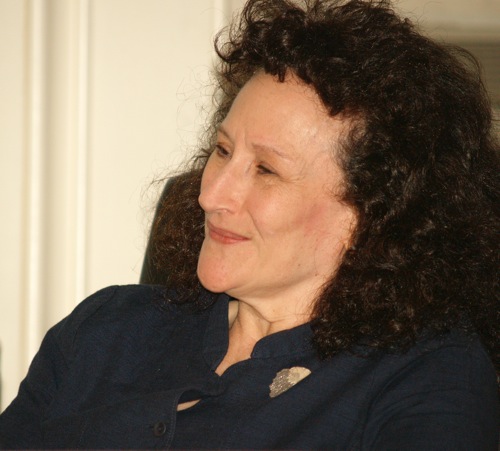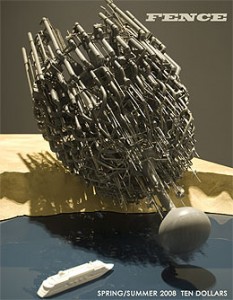“The Writer”
Carson Mell has a story in the new Electric Literature, which I bought because he and Lynne Tillman were published in it. I bought a copy of that and all the Supermachines (which are at least as great as everyone says they are because it’s true) and so I felt really indie lit and hip and stuff for about a week on the bus with people wondering “oh that must be the contemporary literature I hear so much about never” and then I fucked around and started re-reading a book that was written ninety years ago and which made me feel I could climb a building if I only wanted to.
Anyway I don’t much care for Mell’s fiction and I thought the publication quality of Electric Literature was quite poor considering how cool their website is, but then they do manage to pay their contributors and obviously care much more about the web with their apps and all, so maybe that makes up for it. I dunno nothing. Lynne Tillman’s thing was great of course. All in all though, I was underwhelmed. But I still think Carson Mell is a genius at making these videos, so who gives a shit I guess.
Lynne Tillman Story
[The following is a story originally published in Bald Ego magazine, and will appear in Lynne Tillman’s forthcoming new story collection from Cursor in April 2011, titled Someday This Will Be Funny. The piece’s title comes from Clarence Thomas’s words in his testimony during the hearings, October 1991. Recently, Mr. Thomas’s wife allegedly left Anita Hill a voicemail asking for her apology. The story makes interesting use of popular media snafu as subject matter, which made me wonder more about what other great books and stories are able to incorporate such into their bodies in a fictional sense fluidly. Thoughts? – ed.]
Give Us Some Dirt
On long, summer nights in Pin Point, the Georgia air hung still as a corpse, and they’d wait for a breeze to save them. The heat felt like another skin on Clarence. His Mother would say, Clarence, what have you been up to? Playing by the river again? Oh Lord, we’ve got to clean you up for church, but aren’t you something to behold? And his mother would clap her palms together or spread her arms wide, like their preacher. Oh, Lord, she’d exclaim. Sometimes she’d point to sister and lovingly scold, “She doesn’t get up to trouble like you, son.” Clarence scrubbed the mud off until his knuckles nearly bled, while his sister giggled.
These days she wasn’t laughing so much.
The dirt couldn’t be washed away, not after Clarence kneeled in their white church, and they slimed him with derision. They couldn’t see who he was, how hard he’d worked, what he’d had to do, but he knew how to act. Behave yourself, boy, Daddy would say. Clarence’s grandfather, Clarence called him Daddy, was a strict, righteous man, who never complained, not even during segregation times, didn’t say a word, so Clarence wouldn’t, either. Those days were over, and they had their freedom now. He set Daddy’s bust on a shelf near his desk in his new office.
The D.C. nights mortified him, the air as suffocating as Pin Point’s. Clarence couldn’t free himself of history’s stench. On some interminable evenings, he nearly sent that woman a message, made the call, because she’d dragged him down for their delectation. He would pick up the receiver and put it down.
The noise of the ceiling fan assaulted him like a swarm of bugs. Clarence’s jaw locked, and his strong hands balled into fists. Every pornographic day of his trial, Clarence’s wife, Virginia, sat quietly behind him. She barely moved for hours on end, didn’t betray anything, and he worried that, if she had, the calumnies would have spread even further. The sniggers and whispers would have ripped her and him to pieces. He rubbed his face, recalling her startling composure. Rigid, at attention, a soldier in his beleaguered army.
He didn’t tell Virginia what the senators whispered — if he’d tried to marry her, if they’d had sex before the Court decided Loving v. Virginia, they’d have been arrested, and wasn’t it ironic — the Court made Clarence’s dick legal in Virginia, in Virginia? The Capitol’s dirty joke. Their dry Yankee lips cracked into bloodless grins.
The room’s high ceilings dwarfed him. Clarence glanced at a stack of legal papers. His wife was unassailable and white, but under their vicious spotlight her skin looked pasty and sick. She clung to him through his humiliation, even when disgrace lingered like the smell of shit. And now she bore the tainted mark with him.
Clarence wouldn’t say anything. He’d absorbed Daddy’s lessons, he could keep everything inside, all of it. He watched his grandfather’s bust, half expecting it to move, but it only stared down at him from the shelf. Clarence picked the receiver up again and put it down again. He was in that weird trance, and breathed in slowly, to calm himself, and breathed out slowly, to stay calm, and then closed his eyes. Clarence would leave that woman alone, leave her be, and, anyway, what was the sense, what was there to say years later, and there’d be consequences.
He was weary of scrubbing.
When he won, when the seat was his, he watched his friends’ joy, black and white, and they embraced him, slapped him on the back — remember what’s important, what it’s for, our principles, it’s all worth it. Clarence was the blackest supreme court justice in the land, the blackest this country would ever see. He knew that and held that inside him, too. Nothing and no one could whitewash that.
Clarence patted his round belly. He liked to joke about his heft, his gravitas, with his friends and the other Justices. When he delivered his rare speeches, he occasionally mentioned his girth, which drew a laugh, since his body was a source of mirth. Sometimes his hands rested on his stomach during sessions, when he was courtly if mute. The court watchers noted that he never asked questions, they remarked on it until they finally stopped. Clarence felt he didn’t have to say a word. He’d talk if he wanted, and he preferred not to.
When his hair turned white, like Clinton’s, that other fallen brother, Virginia said he looked distinguished, not old. Still, she worried about his weight, she didn’t want to lose him. He hushed her. He intended to be on the bench as long as he could, at least as long as Thurgood Marshall. He looked at Daddy again, eternally silenced, and sometimes talked to him, telling him almost everything. Clarence could hear Daddy, he could hear his voice always. He knew what he’d say.
Clarence’s trial bulged fat inside him. He’d never forget his ordeal, not a moment of it. He closed his briefcase and felt the urge to push Daddy from his perch. He would never let anyone forget his trial. Clarence chuckled suddenly, and a harsh, guttural noise escaped from him like a runaway slave. He’d have the last laugh, he was color blind, and they’d all pay in the end.
Lynne Tillman has published novels, story collections, and works of nonfiction. Her novel No Lease on Life was a New York Times Notable Book and a finalist for the National Book Critics Circle Award, and she received a Guggenheim Fellowship in 2006. Her most recent novel is American Genius: A Comedy.
Paragraphs I Admire So Much I Can’t Believe I Get To Type Them Out (4): Lynne Tillman

Some of the acts I’ve committed have been illegal. When I was five, I stole candy inadvertently from the candy store several blocks from my house, on a main road, in the suburb where I grew up, because its sign said, Take One, and later I stole lipstick from the town five and dime, and then shoplifted clothes from department stores, packing a skirt into the voluminous shoulder of a ratty fur coat, and purchased small amounts of cocaine, all relatively mild infractions of the law. Other people, who have scant education, less economic or skin privilege, might have been arrested, convicted, and sent upstate for the same relatively harmless but illegal acts, and other people have records against them that are public, so that anyone can find out what these people have done wrong, and while I have no record of crimes against property or person, nothing that would show up on police blotters or computers, nothing that I am aware of, or that might hurt me, though I am not aware of everything that might hurt me, I have committed illegal acts that have gone undetected, but I know what I have done, and I know what was wrong and illegal. Legally, I am sane.
* from American Genius, pg. 42
** (I could pick literally almost any graph from this book and feel just as happy sharing it. In my top 20 books of all time, I think. Just too fucking good.)
Fence is inside the house
 Fence just announced a new fiction and poetry contest run in correlation with the Summer Literary Seminars, with publication and cash prizes for best poems and short stories which can be submitted through their website: here. No stamps or printing = nice.
Fence just announced a new fiction and poetry contest run in correlation with the Summer Literary Seminars, with publication and cash prizes for best poems and short stories which can be submitted through their website: here. No stamps or printing = nice.
The fiction side is to be judged by the badass Lynne Tillman, whose last novel AMERICAN GENIUS, is one of the most original and brilliant things I’ve read in years: about the Manson family and a woman in an asylum and encyclopedic recall and other beyond Pynchon shit. In the house.
In addition to being in Fence, winners get free tuition at the SLS, which looks pretty interesting, and includes a trip to either Italy, Lithuania, or Kenya. Jesus xox.
